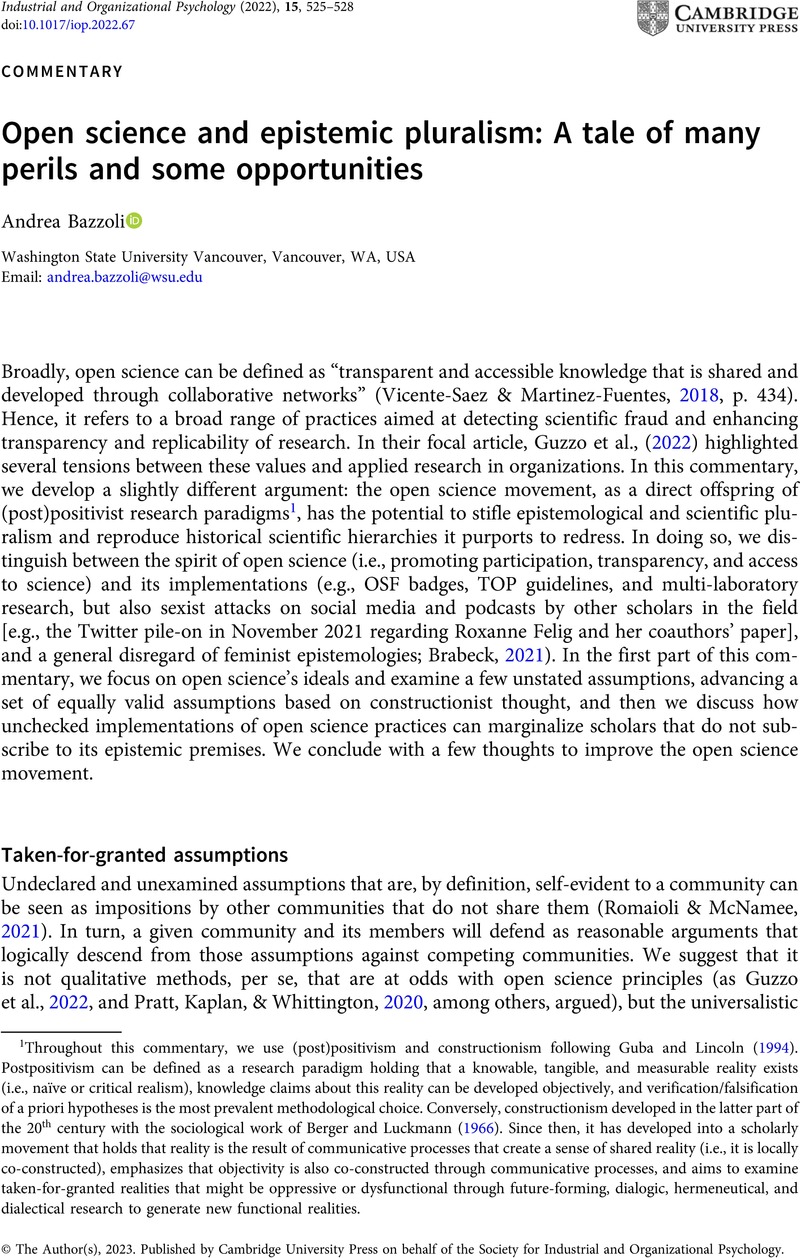Crossref Citations
This article has been cited by the following publications. This list is generated based on data provided by Crossref.
Hostler, Tom
2024.
Research assessment using a narrow definition of “research quality” is an act of gatekeeping: A comment on Gärtner et al. (2022).
Meta-Psychology,
Vol. 8,
Issue. ,
Lakens, Daniël
Mesquida, Cristian
Rasti, Sajedeh
and
Ditroilo, Massimiliano
2024.
The benefits of preregistration and Registered Reports.
Evidence-Based Toxicology,
Vol. 2,
Issue. 1,
Garzino Demo, Luca
2025.
Preregistration is not a ceiling: but it can become one.
Synthese,
Vol. 205,
Issue. 3,



